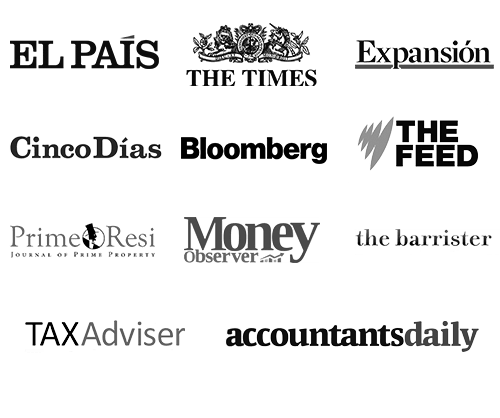Buying property in Spain
There are three main steps. Once you have finally found the property you would like to buy, you start the process by signing a reservation agreement. This usually involves paying a deposit of about 1% of the purchase price (up to 5%.)
The agent will often bring a prepared form outlining the conditions of the deal and will push you to sign it on the spot. Then comes the down payment contract, in which you will normally be required to pay 10% of the purchase price.
Finally, you will need to sign the purchase deed at a notary public. At this point you will pay the remaining balance of the agreed price and then become the legal owner.
Fees for buying a property in Spain vary from area-to-area, and many are negotiable – for example, there are no fixed fees for lawyers or estate agents. Buyers must pay the majority of the costs, which are generally as follows: Property transfer tax: 6–10% (existing properties) / VAT (or IVA) at 10% (new properties) Notary costs, title deed tax, land registration fee: 1–2.5% and Legal fees: 1–2% (including VAT.) The seller usually pays the estate agent fees in Spain and estate agents tend to charge their fees as a percentage, typically around 3% of the final sale price.
Buying a holiday-let might be more complex than it used to be, but Spain is a very welcoming country for foreign buyers, which limits the possibilities for common home-buying blunders. The rules for buying a property in Spain, as an expat, are relatively straightforward. Before buying, you’ll require a tax identification number in Spain, which can be obtained by visiting a police station with your passport. This is typically processed on the same day for Spanish or EU citizens, but may take a few weeks for others . Spain also offers a Golden Visa program for foreign property owners. Under the scheme, if you invest more than £500,000 in Spanish properties, you’ll get a residency visa. Golden Visas are primarily for retirees and holiday home buyers but are particularly popular with investors from outside the European Union. In the first half of 2019, Spain approved 848 Golden Visas, with Chinese (272) and Russian (187) investors making up the majority of successful applicants. In total, this meant 4,941 people received a Golden Visa since the scheme’s launch in 2013.
90 days. You will be allowed to spend up to 90 days in Spain, and then you must leave the country. You will not be able to return until 180 days have passed since your date of entry into Spain (or Schengen). However, you can divide the 90-day period into two (45 days each) and spend each of them in Spain during the 180 days.
At the moment, yes – buying Spanish property is a good investment. In fact, at the beginning of 2019, the average property price in Spain had risen by 6%, making it an even better choice in terms of buying and reselling a property.
Factors to be aware of when buying Spanish property include property scams, high capital gains tax, and fluctuations in the property market. The added uncertainty caused by COVID-19 means that now could be a risky time to buy in Spain. The country’s rental market is also in flux.
Some of the common pitfalls of buying a property in Spain include deposit, purchase tax, issues with off-plan properties and properties being built illegally. During your research into buying a property in Spain you will have come across many stories of purchases in Spain gone wrong, but this is not always the case.
Yes, it is totally possible to buy a home in Spain even if you are not a resident. As we have already mentioned, the foreign non-resident buyer will be required to obtain the NIE in advance, which must be requested at the General Immigration Office.
Can’t find your question?
No problem. You can send us your question via this form, and we will get back to your with an answer.

